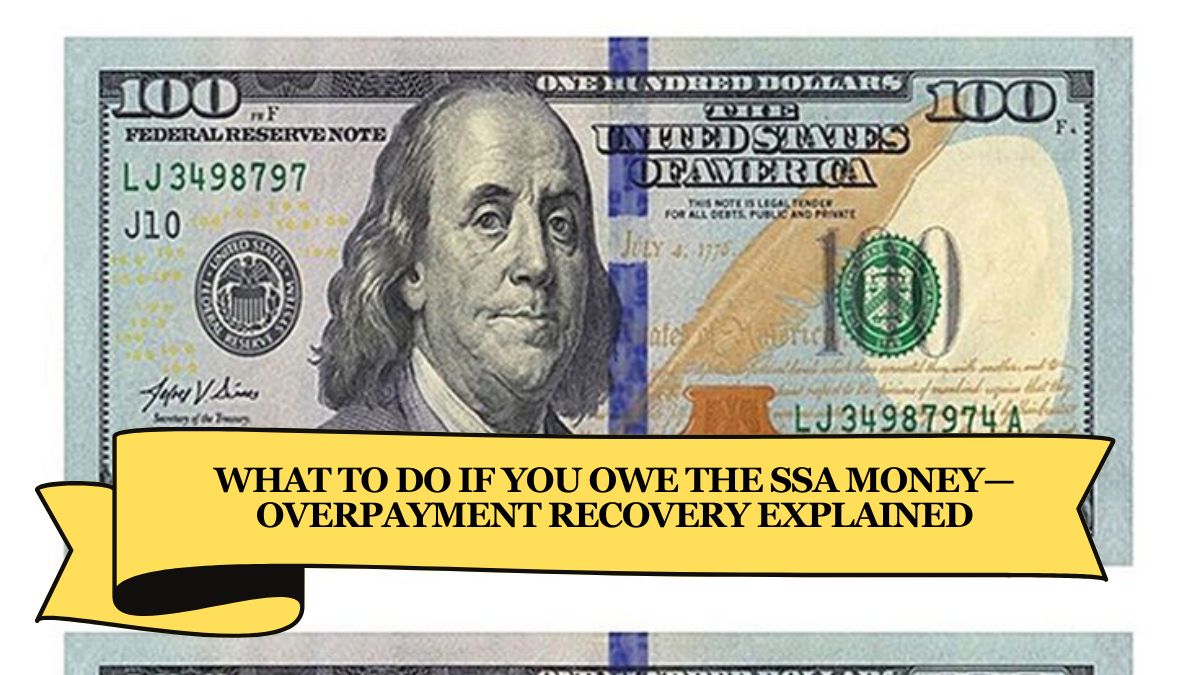Social Security is a vital program that helps millions of Americans with financial support, especially those who are retired or disabled. But, like any large system, mistakes can happen, and sometimes people are accidentally overpaid. This can create a lot of confusion and stress, especially when the Social Security Administration (SSA) demands repayment. A recent case in Texas highlights the serious consequences of such errors and the stress they can cause. This article explores what happened in that case, how Social Security overpayments work, and what U.S. seniors can do to protect themselves from similar situations.
What Happened to the Texas Woman?
In 2023, a woman in Texas found herself in a difficult situation when the SSA claimed that she owed over $40,000 due to an overpayment. This error wasn’t discovered until two and a half years after the overpayment occurred. The SSA gave her just 30 days to repay the amount and even stopped her monthly checks entirely. This situation left the woman in a challenging situation, as she was left without any income and faced a substantial debt burden.
Social Security Overpayments: What Are They?
Social Security overpayments occur when someone receives more money than they are supposed to. The SSA may make these mistakes, or the individual might not fully understand the rules about their benefits. Overpayments can happen for many reasons, such as when an individual’s work income affects their disability payments or if the SSA fails to update someone’s earnings record correctly.
The Impact of Overpayments on Seniors
For many seniors, Social Security is their primary source of income. When an overpayment happens, it can create serious financial hardship. One example is a man from Missouri who owed the SSA $67,000 in overpaid benefits. The stress of this repayment led him to lose his car and home. At the age of 68, he found himself homeless, relying on food stamps to survive. This illustrates just how devastating overpayments can be for older adults.
The SSA’s Policy Changes for Overpayments
In 2024, the SSA made changes to how they handle overpayments. These new policies are designed to be more flexible and prevent serious financial harm. For example, the SSA no longer withholds 100% of a person’s benefits. Instead, they collect either 10% or $10 of the overpayment amount each month. This change is meant to make repayment more manageable for people on fixed incomes.
Additionally, the SSA has extended the maximum repayment period from 36 months to 60 months. They also plan to make it easier for people to request waivers if they believe they were not at fault for the overpayment or if they can’t afford to repay the amount.
How to Handle Overpayment Notices from the SSA
If you receive a notice from the SSA saying that you owe money due to an overpayment, it’s important to respond. The SSA will notify you by mail, and you typically have 60 days to file an appeal if you believe the overpayment was a mistake or the amount is wrong.
In some cases, you can request a waiver of the overpayment if you believe you should not have to repay the amount. If the overpayment is $1,000 or less, you can request a waiver over the phone. However, if you are no longer receiving Social Security benefits, you will need to set up a repayment plan with the SSA.
Failing to respond to overpayment notices can lead to serious consequences. If you don’t pay or set up a payment plan, the SSA can take your tax refund, wages, or future benefits to recover the money.
Proactive Steps to Avoid Overpayments
It’s better to prevent overpayments than to deal with them after they happen. The SSA recommends that all recipients of Social Security regularly check their earnings history on the “My Social Security” website. This will help ensure that your earnings record is accurate. The SSA also provides a benefit calculator, which can help you estimate how much you should be receiving. By comparing your actual payments with this estimate, you can spot any discrepancies early.
For those who work in the public sector or receive workers’ compensation, it’s important to report any changes to the SSA. These income changes can affect disability benefits, and failure to report them could result in overpayments. Additionally, Supplemental Security Income (SSI) has very strict reporting requirements, and people receiving SSI should fully understand the program’s rules to avoid mistakes
Social Security overpayments can cause serious financial problems, especially for older adults who depend on their benefits to survive. In the case of the Texas woman who was told to repay $40,000, it became a stressful situation that affected her well-being. However, recent policy changes by the SSA aim to make it easier for people to manage overpayments, and there are steps you can take to avoid this situation in the first place. Always check your earnings record, report income changes, and act quickly if you think you’ve been overpaid. Understanding the rules of Social Security can help protect you from these financial setbacks.
You Must Visit: California State Online

